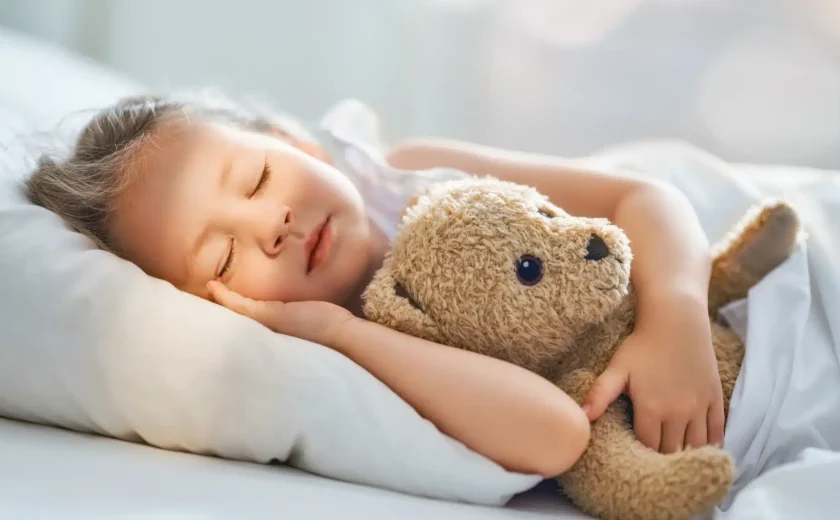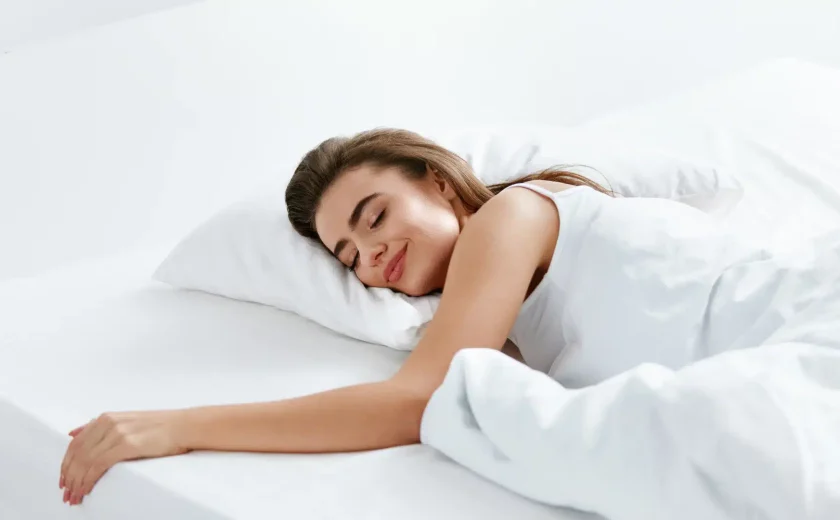Sleep apnoea and depression are two health conditions that often go hand in hand, creating a complex cycle that can affect both mental and physical well-being. While both are common, their interconnection is often misunderstood. Many individuals struggling with one may not realize that the other is contributing to their condition.
Let’s explore the connection between depression and sleep apnoea with Dr. Aditi Desai, answer common questions like “Can depression cause sleep apnoea?” and “Can sleep apnoea cause depression and anxiety?”, and discuss effective ways to seek relief.
What Is Sleep Apnoea?
Sleep apnoea is a sleep disorder characterized by repeated interruptions in breathing during sleep. These pauses in breathing can last from a few seconds to a minute and can occur hundreds of times per night, leading to fragmented sleep. The most common type of sleep apnoea is obstructive sleep apnoea (OSA), which occurs when the muscles in the throat relax excessively, blocking the airway. Less common types include central sleep apnoea, where the brain fails to send the proper signals to the muscles that control breathing, and complex sleep apnoea, which is a combination of obstructive and central sleep apnoea.
The Link Between Sleep Apnoea and Depression
Depression and sleep apnoea are deeply connected. Studies have shown that people with sleep apnoea are more likely to suffer from depression and anxiety. This creates a vicious cycle — depression can exacerbate the severity of sleep apnoea, and the fragmented sleep caused by sleep apnoea can increase feelings of depression. This interplay is complex, and understanding it can help those affected take the necessary steps toward healing.
Can Depression Cause Sleep Apnoea?
One of the common questions people ask is, “Can depression cause sleep apnoea?” While depression doesn’t directly cause sleep apnoea, it can contribute to its development or exacerbate its symptoms. Depression can affect the brain’s regulation of sleep, leading to irregular breathing patterns during sleep. In particular, individuals suffering from major depression may have a higher likelihood of experiencing disturbed sleep, including sleep apnoea-like symptoms. The chronic fatigue and poor sleep quality that often accompany depression can make the brain more sensitive to airway restrictions, thus worsening sleep apnoea symptoms.
Additionally, depression often leads to lifestyle changes that can increase the risk of sleep apnoea. For example, individuals who are depressed may engage in unhealthy habits such as excessive alcohol consumption or overeating, both of which are known risk factors for sleep apnoea.
Can Sleep Apnoea Cause Depression and Anxiety?

On the flip side, one of the most significant concerns for people with sleep apnoea is the question: “Can sleep apnoea cause depression and anxiety?” The answer is yes. Sleep apnoea leads to fragmented sleep, which can cause feelings of irritability, fatigue, and difficulty concentrating. Over time, the persistent tiredness and lack of restorative sleep can contribute to feelings of hopelessness and sadness, which are hallmark symptoms of depression. Moreover, sleep deprivation increases stress levels and exacerbates anxiety, creating a cycle that is difficult to break.
Chronic sleep apnoea can also lead to other physical health problems, such as high blood pressure, cardiovascular disease, and diabetes. These health concerns can further contribute to a person’s mental distress, increasing the risk of developing depression and anxiety.
Can Major Depression Cause Sleep Apnoea?
Another question people often ask is, “Can major depression cause sleep apnoea?” While depression itself may not directly cause sleep apnoea, the symptoms of major depression, such as fatigue, insomnia, and changes in breathing patterns, can lead to conditions that may exacerbate or trigger sleep apnoea. People with major depression may also engage in unhealthy behaviors, like smoking or overeating, which are known risk factors for sleep apnoea.
Furthermore, the brain’s regulation of sleep is often impaired in those with major depression, making it more difficult for individuals to maintain normal breathing patterns during sleep. This can lead to obstructive sleep apnoea or central sleep apnoea, even in individuals who have no other risk factors.
Can Mild Sleep Apnoea Cause Depression?
“Can mild sleep apnoea cause depression?” is another common concern for those affected by the condition. Even mild cases of sleep apnoea can have a significant impact on mental health. People with mild sleep apnoea may experience symptoms such as daytime fatigue, difficulty concentrating, and irritability, which can contribute to feelings of depression. The fragmented sleep caused by sleep apnoea can lead to emotional and cognitive difficulties, which can worsen existing depression or trigger new depressive episodes.
Effective Treatments for Sleep Apnoea and Depression

Fortunately, there are several effective treatments for depression and sleep apnoea, and addressing both conditions simultaneously can lead to significant improvements in quality of life. Here are some common approaches:
-
Continuous Positive Airway Pressure (CPAP):
For those with obstructive sleep apnoea, CPAP therapy is the gold standard treatment. A CPAP machine delivers a continuous stream of air through a mask, helping to keep the airway open during sleep. By treating the underlying sleep apnoea, CPAP therapy can improve sleep quality, reduce fatigue, and alleviate the mental distress caused by sleep deprivation. This, in turn, can help reduce symptoms of depression and anxiety.
-
Cognitive Behavioral Therapy (CBT):
CBT is a highly effective treatment for depression and anxiety. This type of therapy focuses on identifying and changing negative thought patterns and behaviors that contribute to depression and anxiety. CBT can be combined with sleep hygiene techniques to improve both mental health and sleep quality, breaking the cycle between sleep apnoea and depression.
-
Lifestyle Modifications:
Making lifestyle changes can be beneficial for both depression and sleep apnoea. For example, regular exercise can improve mood and help reduce the severity of sleep apnoea. A healthy diet and weight loss can also alleviate the symptoms of sleep apnoea, particularly in individuals with obstructive sleep apnoea.
-
Medications:
In some cases, medications may be prescribed to help manage depression and anxiety. Antidepressants and anti-anxiety medications can help regulate mood and reduce the mental distress caused by sleep apnoea. These medications may be used in conjunction with other treatments, such as CPAP therapy, to improve overall mental health.
Sleep apnoea and depression are closely intertwined, and addressing both conditions is crucial for improving quality of life. While depression can contribute to the onset or worsening of sleep apnoea, sleep apnoea itself can lead to or exacerbate symptoms of depression and anxiety. By understanding the connection between these two conditions and seeking appropriate treatment, individuals can break the cycle of poor sleep and mental distress.
If you suspect that sleep apnoea is affecting your mental health or vice versa, it’s essential to consult with a healthcare professional. With the right treatment plan, you can regain restful sleep and improve your overall well-being. Don’t let depression and sleep apnoea control your life — take action today to seek relief and enjoy better sleep and mental health.



